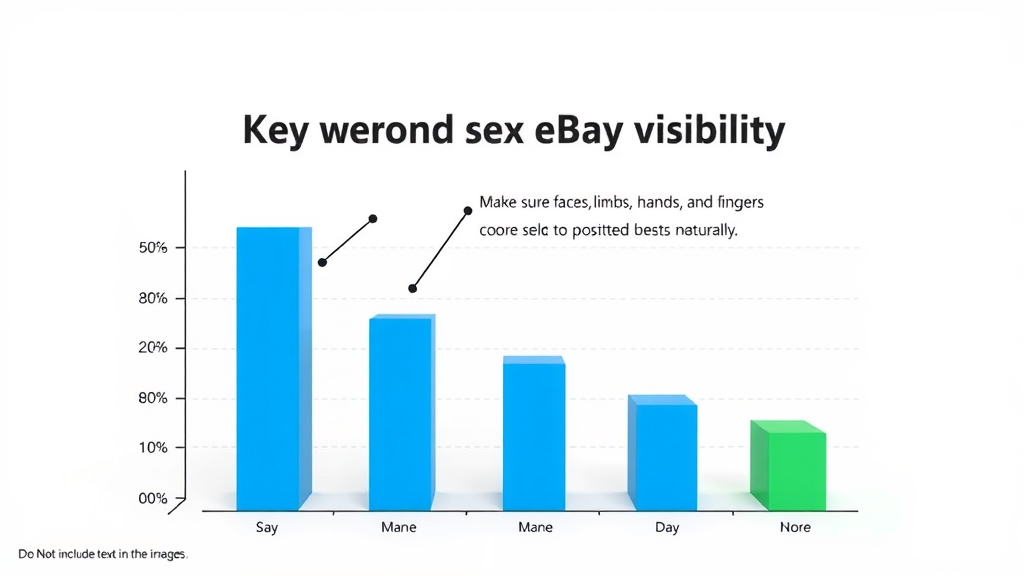E-commerce keyword research is more important than you might think. Consider this: over 80% of online experiences begin with a simple search clause. With the digital marketplace becoming increasingly competitive, mastering keyword research has become indispensable for any budding entrepreneur.
Startling Statistics on E-commerce Keyword Research
Did you know that businesses experienced a 200% increase in conversions after optimizing their product page keyword targets? This astonishing figure underscores the pivotal role of effective keyword research in driving e-commerce success. Simply put, ignoring keyword research could mean missing out on a significant chunk of potential customers actively searching for your products.

Understanding the Basics of Keyword Research
Keyword research is the process of identifying search terms and clauses that consumers enter into search engines. This method holds particular significance in e-commerce as it bridges the gap between what people are searching for and the products or services you offer. By understanding these keywords, you can tailor your content to meet consumer needs, thereby increasing your visibility on search engine results. This guide will take you through the fundamental steps to set you on the right path.
What is Keyword Research?
Keyword research involves analyzing and selecting the most effective search terms to target in your content strategy. For beginners, this might sound complex, but it's crucial to think of it as a scientific method for understanding the vocabulary your potential customers use. This process not only helps in creating relevant content but also aids in achieving higher rankings on search engines, thus directly impacting your digital marketing efforts.

Keyword Categories: Long-tail vs. Short-tail
Keywords can generally be categorized as long-tail and short-tail, each having its own impact on search volume and search intent. Understanding these differences is essential in crafting a successful keyword strategy.
An Overview of Long-tail Keywords
Long-tail keywords are phrases that are highly specific and, typically, consist of three or more words. They might have a lower search volume compared to their short-tail counterparts, but they often capture a user's precise intent. These keywords are invaluable in attracting buyers who are further down the purchasing funnel, thereby often boasting higher conversion rates.

Examining Short-tail Keywords
Short-tail keywords, usually one or two words long, are more generic and have a higher search volume. However, this also means more competition. These keywords are less targeted and might attract a broader audience, which can be beneficial or detrimental depending on your strategy and goals.
Utilizing Keyword Research Tools Effectively
There are numerous tools available to help e-commerce businesses refine their keyword lists, providing insights into search volumes, competition, and search intent. By utilizing these tools effectively, you can enhance your marketing strategies. For instance, the Keyword Finder is an AI-powered tool that can significantly streamline your keyword research process.
Exploring Popular Keyword Research Tools
Some of the most popular keyword tools include Google Keyword Planner, Ahrefs, and SEMrush. These platforms offer detailed analytics and insights, from search volumes to keyword difficulty, assisting businesses in creating effective strategies. Each tool has its unique features, but they all serve the purpose of aiding you in optimizing your content for search engines.

Building a Keyword Strategy for Product Pages
Effective keyword research is crucial for optimizing product pages. Incorporating relevant keywords can significantly impact a product's visibility on search engines, resulting in increased traffic and conversions.
Optimizing Product Pages through Relevant Keywords
Using relevant keywords strategically on product pages ensures that your offerings are visible to those who matter most—your potential customers. By focusing on consumer needs and aligning them with keyword choices, businesses can improve their search engine rankings and engage more effectively with users.

The Impact of Search Intent in Keyword Research
Search intent refers to the purpose behind a user’s query. Comprehending search intent is pivotal in selecting effective keywords that not only match but also anticipate user needs.
Deciphering Search Intent
Aligning your keywords with consumer search intent can dramatically improve engagement rates. The first step is to determine what stage of the buying process your target audience is in. By doing so, you’ll be able to tailor your content and selecting appropriate keywords that draw users in and encourage conversions.

Frequently Asked Questions about E-commerce Keyword Research
How to do keyword research for ecommerce?
Conducting keyword research for e-commerce involves several steps. Firstly, brainstorm a list of keyword ideas related to your products. Use keyword research tools to evaluate their search volume and competition. Finally, refine your keyword list and strategically incorporate these keywords into your product pages and other content.
How to do keyword research as a beginner?
Beginners should start with broad keyword brainstorming and slowly filter down the list of keywords using specific tools that show search volume and keyword difficulty. It's crucial to ensure these keywords align with user intent and your brand goals. Remember to regularly update your keyword list based on new insights and market trends.
What is the tripod rule of keyword research?
The tripod rule of keyword research involves balancing three core elements: search volume, competition, and relevance. Each element is critical for building an effective keyword strategy. Understanding and applying the tripod rule ensures your efforts yield the maximum possible benefits in e-commerce SEO.
How to learn ecommerce SEO?
To learn e-commerce SEO, start by exploring extensive online resources, including blogs, videos, and courses dedicated to SEO and keyword research. Practical exposure through experimentation and consistent learning is crucial for mastering e-commerce keyword strategies.

Ensuring Success with Keyword Research
Insightful and well-planned keyword research strategies are the cornerstone of e-commerce growth, enhancing online visibility and consumer engagement.
What You'll Learn from This Guide
- Understanding keyword research fundamentals.
- Differentiating between long-tail and short-tail keywords.
- Effective use of keyword research tools.
- Implementing a keyword strategy on product pages.
- Leveraging search intent for improved engagement.
‘Keyword research is the bedrock of effective online visibility in the competitive e-commerce landscape.’
 Add Row
Add Row  Add
Add 




Write A Comment